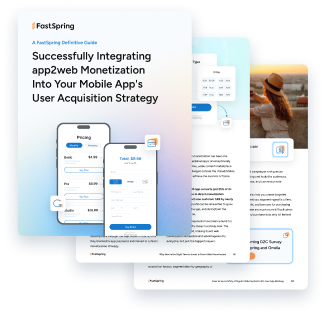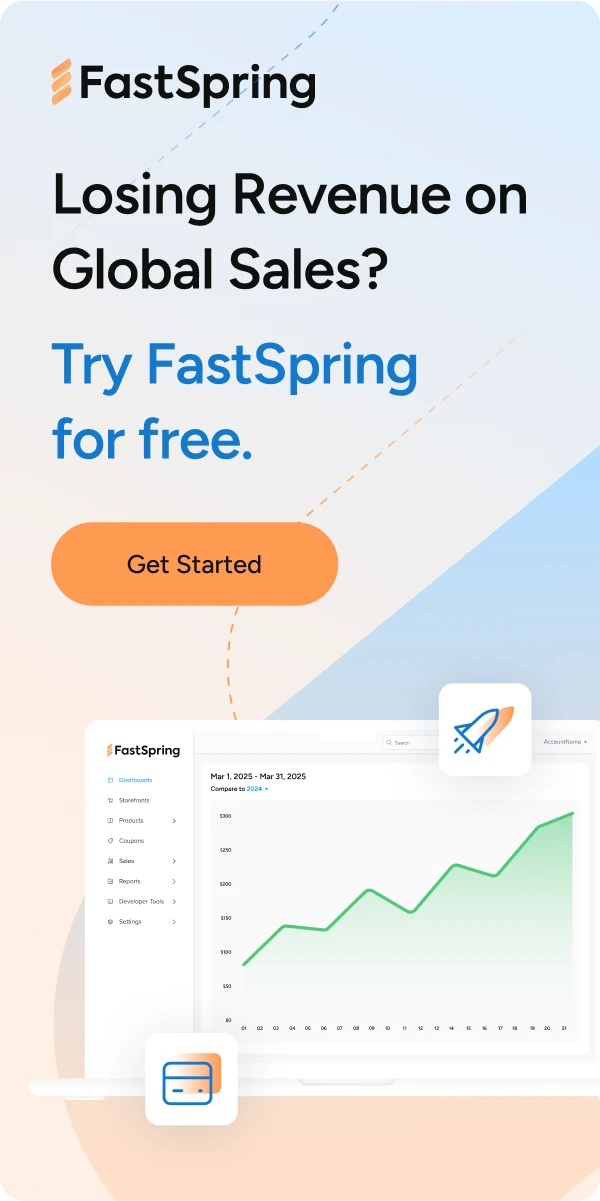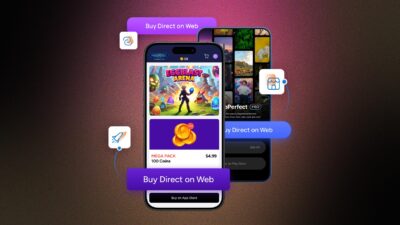A lot of big changes around direct-to-consumer options in the games industry have been going on in the past few months. For example:
- The settlement between U.S. States and Google.
- A ruling in favor of Epic in Epic Games v. Google.
- The Supreme Court rejecting appeals from Apple and Epic.
- Apple’s most recent announcement of policy changes skirting around the new DMA rules.
These changes indicate one thing: The mobile games industry is changing, but Apple and Google will fight with everything they have to keep their grip on payment processing — and by extension, players’ wallets.
Amidst these Goliaths fighting over revenue from games and in-app purchases are the players.
In today’s market, the only option for true freedom lies on PC. There, players can choose between the convenience and reliability of Steam (or similar marketplaces), or they can go directly to the publisher and make purchases there.
On mobile, players aren’t granted that choice — they’re locked into using app stores if they want to download and play their favorite games.
With mobile gaming making up over half of all video game revenue worldwide, the question arises: What are players trading when they make the choice to play on mobile?
Better Value Bundles
Marketplaces like Apple’s and Google’s discourage studios from offering players more value per dollar spent because of their steep marketplace transaction fees.
Plus, they actively inhibit studios’ ability to advertise the better rates that are often available on their own websites through loyalty programs — with the added threat of delisting their games from the marketplace.
Players who want a better value ultimately have to take extra steps, and often, casual players who might opt for a better value are unable to do so because they aren’t aware of the added value through direct-to-consumer channels such as the studio’s website.
In-Game Exclusives
The steep fees imposed on game developers are a cost that cascades down to players, not only through steeper costs for apps or in-game purchases but also through missed in-game items.
Some developers leverage their own loyalty or member programs to provide additional value in the form of exclusive items that can only be purchased through those stores.
While players can use these avenues to get those items at any time, anti-steering rules within app stores and other marketplaces result in a large portion of the player base missing out on in-game exclusives, simply because they aren’t aware of the option.
Flexibility in Price Points
Players who love their games and have the financial freedom to support them via in-game purchases are often limited due to marketplace caps on purchase amounts.
Gamers are then forced to make multiple transactions at a lower value (for example, getting less in-game currency per dollar).
Direct-to-consumer payment options solve this problem by allowing studios to set the price points that make sense for their players, allowing players the freedom to support the games they love in the ways that works best for them.
Better Game Development From More Money Going Directly to Studios
Studios that have to fork over nearly a third of their revenue to marketplaces are faced with increased development costs across their portfolios.
For players, this can equate to higher prices for games, slowdown in new content releases, and sometimes even the shuttering of their favorite studios.
When studios can avoid the 30% fees imposed by marketplaces like Apple and Google, the benefits quickly cascade down into the players’ hands.
How FastSpring Can Help
Ultimately, the lack of direct-to-consumer options in mobile gaming limits player choice and value. The dominance of major app stores not only restricts player access to more value, but also perpetuates a system that benefits the app stores at the expense of both players and studios. At FastSpring, we are actively seeking ways to support studios that are looking to expand their direct-to-consumer channels — and have done so right now.
Read more about how FastSpring supports game studios, or sign up for a demo. Also, take a look at how FastSpring helped Out of the Park Developments increase revenue in South Korea.










